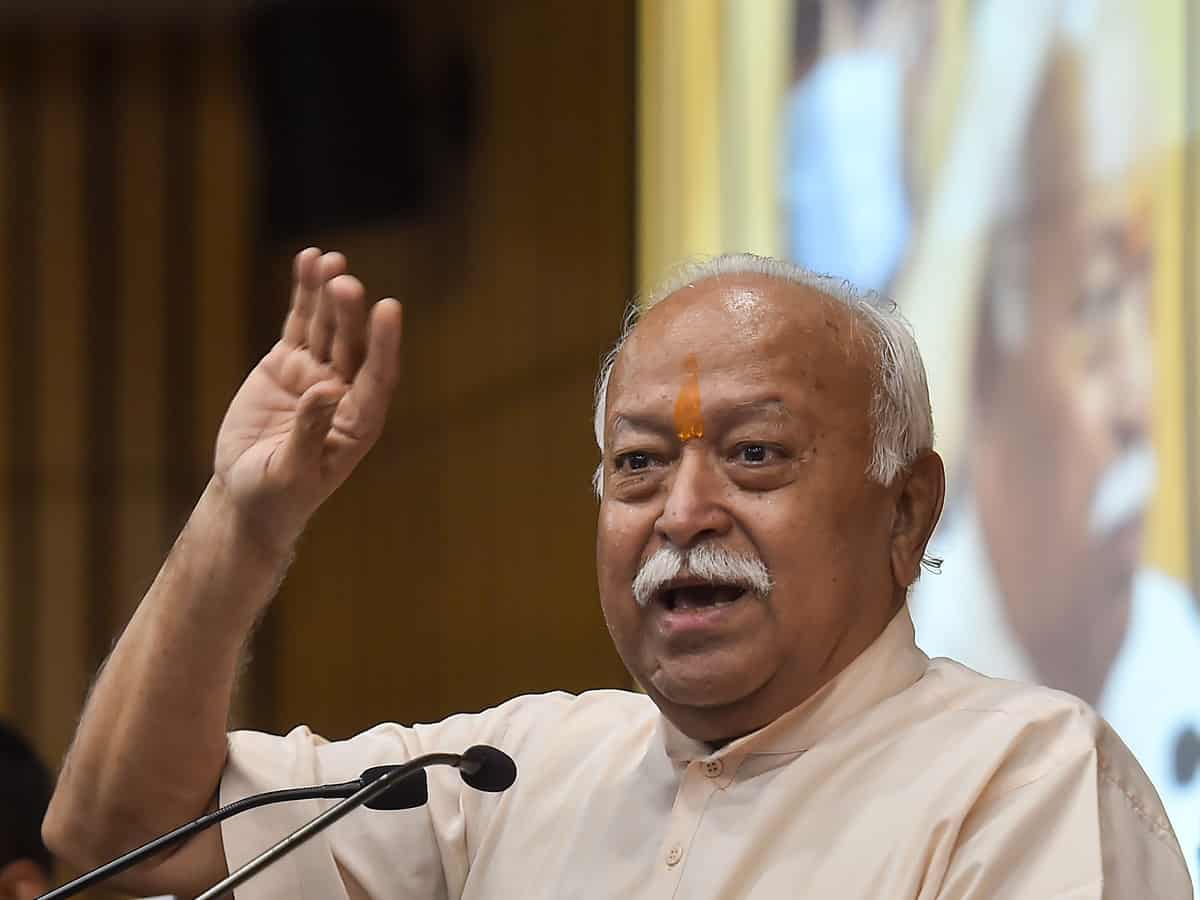
The government ban on the Popular Front of India (PFI) and its eight affiliates is nothing short of the proverbial, “throwing a spanner” in Rashtra Sevak Sangh (RSS) chief, Mohan Bhagwat’s path breaking conciliatory work to harbour Bharatiya Muslims into a working socio-political relationship with Hindus to ease the growing fears and misunderstanding between the two communities.
To this end, Mohan Bhagwat has in the past couple of weeks overtly made odd and intriguing but conciliatory statements about Musalmans, their relationships with majority Hindus and their rights in India.
Reaching out to the Muslims who seemingly are disoriented about their future in the country as they often are subjected to humiliation and violence from right-wing Hindu outfits affiliated with RSS and state bulldozer actions. Bhagwat has on several occasions made reconciliatory statements allaying fears of 200 million plus Muslims.
His assuring remarks, “the two people having the same DNA.” “We are all one from the last 4000 years”. “They (Hindu-Muslim) are not separate but they are Judehuwah (joined). His admonishing the “lynching gangs” and those asking Muslims to leave the country, as against Hindutva, is yet to sink positively in the mindset of the community at large, albeit accepted at face value by the few privileged and connected of the community.
However, if his most recent remark following the Gyanvapi Mosque issue, “stop looking for Shivling under every mosque”, is to be taken seriously there must be a full stop to laying claims on Muslim places of worship and other related properties by sundry affiliates of his party.
Mohan Bhagwat is his own man, different from his predecessors and as Walter K. Anderson one of the leading chroniclers of RSS has described Bhagwat as a conciliator and diplomat, on a mission to build bridges with minorities who have suffered under the eight years of BJP rule.
And at the same time, he has to maintain some kind of balance vis-a vis his party’s main affiliates the Bharatiya Mazdoor Sangh (BMS), Akhil Bharatiya Vidayarthi Parishad (ABVP), and thirty-six such other groups and hundred other small and big organizations that have socio-political penetrations who invariably are the hate mongers and lack discipline taking to violence on non- issues, spreading fear in the minorities.
Walter K. Anderson and Sridhar D. Damle bringing to point this in their book, “The RSS –A View to the Inside” argue that this to some extent could be the major factor in the kind of see-saw remarks he makes. His parlays with a few selected obsequious Muslims cut little ice with the community.
The lot he had discussed issues were mostly, “the dance attendance upon” kind erroneously called intellectuals by the mainstream print and electronic media.
Perhaps his mission would have gained more ground had he included former Vice President of India, Hamid Ansari, Rectors of two leading Islamic institutions of Nadwa and Deoband, Asaduddin Owaisi of AIMIM, Salman Khursheed, not in his old avatar as UPA external minister, but as a distinguished author of several books dealing with the current situation, Saeed Naqvi senior journalist and author of a couple of books on Indian Muslims and their plight.
His visit to a Madarasa and Mosque in Delhi is again wanting and falls short of the right connections Mohan Bhagwat is seeking with the community.
The Ilyasis are little known to the community at large. Dr Umer Ahmed Ilyasi claiming to be a head of The All-India Imam Organization not much in the public domain came to be known albeit unfavourably when he paeaned Modi in a function startling the global Indian diaspora who on social media were curious to know his credentials.
On the surface, it looked more like a quid pro quo visit. The RSS supremo has still time to take his mission to people and organizations that count and matter, otherwise he may be the ‘spider’ in Mary Howitts poem inviting the ‘fly’.
He should schedule visits to Nadwa, Deoband, Aligarh University, Jamia Millia Islamia, and JNU, and hold talks with students and faculty members. Meet with the victims of communal violence. People whose homes have been bulldozed, property seized. Talk to the Gujarat gang rape victim Bilkis Bano, who’s suffering the ignominy of rape and humiliation as the predators of the crime are pardoned.
Reconciliation and healing of wounds need more action on the ground than words and meaningless visits to meaningless people and places.



